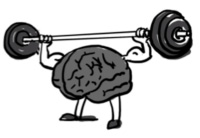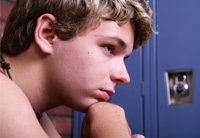
Skills for kids/students
Jump to: Educational programs • Classroom projects • Counseling services
Educational programs
It is well known that children who have fewer worries on their minds learn more, and can function better in a classroom setting. Schools benefit immensely from supporting the development of social and emotional skills in their students. This prevents rampant problems such as bullying, saves teachers’ precious time and energy for educational endeavors, and allows young people to immerse themselves in learning. In addition, everything in school requires "focusing" skills, but no one ever teaches students how exactly to do that and how to improve the minds' ability to concentrate. The programs below develop all the basic and critical skills that provide a foundation for students to become fully available for learning.
Classroom projects
The Lion vs Choice Brain Project
Designed for younger children, this project helps children recognize and name their internal experiences and develop better impulse control. Children become increasingly aware of their experiences and of their ability to make problem decreasing decisions.
Appropriate for Pre-K to 2nd grade;
Available in 5 or 10 weeks packages.

The Brain Powers Project
Recipient of the SAL research award, featured in a documentary by Alexander Street Press, this project is guaranteed to transform a classroom culture and infuse it with a variety of social skills including: empathy, compassion, patience, kindness, self-awareness, and consequence thinking.
Appropriate for grades 3-5;
Available in 6, 12 or 18 weeks packages.
Handling Teen Pressures and Relationships
Designed for adolescents, this project involves increasing young people's awareness of the various pressures placed on them to be or act certain way, and how to respond. Various class discussions are facilitated on gender issues, peer pressure, problematic relationships, and special activities empower students to clarify and hold on to the person they prefer to be. Appropriate for grades 6 to 12; Available in 2, 4 or 6 weeks packages.
Cultivating the ability to pay attention, and be calm
Based on the new research on mindfulness and the brain, projects for all ages are designed to assist children in the development of a peaceful, focused and attentive mind. Unlike traditional teachings of mindfulness, this set of projects uses “activity based” mindfulness practices which mobilize the interest and involvement of children who most need these skills and easily disconnect from traditional teachings. Appropriate for all ages.
Available in 4, 8 or 12 weeks packages.
Mindfulness and stress reduction for teens and pre-teens
Teens and preteens often struggle with stress and anxiety. With the increasing demands placed on them at a young age, many students benefit greatly from learning mindfulness meditation exercises and stress management techniques specifically adapted to their developmental stage. Classroom settings provide the ideal conditions to teach these ideas. A simple 10-20 minute relaxation sequence can provide students with a brief respite from academic lessons, relax their body, increase oxygen flow to their brain, enhance their ability to concentrate, and allow them to discover tools that they can use for the rest of their lives. Teachers and students alike have marveled at the transformation of a class atmosphere after these brief exercises.
Videos of some exercises: VIDEOS
SEE ALSO: Skill boosting programs for teachers and parents.

Counseling services
Therapeutic conversations can promote the best in every child while addressing the more serious issues interfering with optimal performance
Individual Therapy
We meet with students to address issues such as academic performance, motivation, hyperactivity, anger, bullying, performance anxiety, relationship issues with peers/teachers, chronic playground problems, etc. These therapeutic interactions can take place in an office but also elsewhere to maximize helpfulness. This may include walking outside if that's the best way for a student to have a meaningful discussion. Our approach is creative, based in developmental science, and clinical wisdom. We are committed to provide a modality of interaction that will best serve the student.
Family Therapy
We involve families so that parents can better understand their children's and teachers' experiences, support our problem reduction efforts, and respond to situations in the best possible way. It is easier for children to improve their behaviors and develop skills when everyone involved is collaborating and providing a consistent and supportive environment.
Small Groups
We organize small groups to address common problems which benefit from the presence of multiple students. This includes discussion and therapy groups on topics such as friendship, teasing, gossiping, shyness, divorce, grief, body image, etc. Small groups also allow us to involve a much greater number of students.
Teacher and administrator consultation
We reach out to teachers and principals making sure that we include their views in our work with students. The broad perspective that arises from integrating the view from multiple people allows our work to be more effective. It also sparks many creative ideas that we can share with educators to help them respond to their daily encounter with students in a variety of ways.
